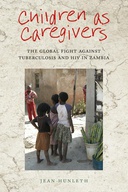Explore
The global public health community has focused care and funding on TB and HIV in Zambia, but adult policy-makers, doctors, and humanitarians often ignore children's perspectives as they confront infectious diseases. Well-intentioned practioners fail to realize how children take on active caregiving roles when their guardians become seriously ill. Using ethnographic methods, and listening to the voices of children as well as adults, Hunleth makes the caregiving work of children visible. Children actively seek to "get closer" to ill guardians by providing good care. Both children and ill adults define good care as children's attentiveness to adults' physical needs, their ability to carry out treatment and medication programs in the home, and above all, the need to maintain physical closeness and proximity.
This book is included in DOAB.
Why read this book? Have your say.
You must be logged in to comment.

